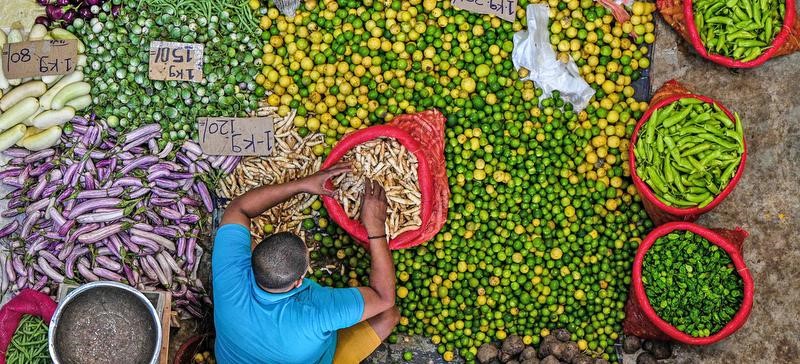Description

Disclaimer: Copyright infringement not intended.
Context: The International Monetary Fund (IMF) confirmed a $3 billion bailout plan for Sri Lanka’s struggling economy. Negotiations are also being held with Pakistan for a $1.1 billion bailout plan.
Details:
Need for IMF bailout:
- Countries seek help from the IMF usually when their economies face a major macroeconomic risk, mostly in the form of a currency crisis.
Conditions in Pakistan and Sri Lanka:
- Both countries have witnessed domestic prices rise rapidly and the exchange value of their currencies drop steeply against the U.S. dollar.
Reasons:
- Such currency crises are generally the result of gross mismanagement of the nation’s currency by its central bank, often under the covert influence of the ruling government.
- Central banks may be forced by governments to create fresh money out of thin air to fund populist spending.
- Such spending eventually results in a rapid rise of the overall money supply, which in turn causes prices to rise across the economy and the exchange value of the currency to drop.
- A country’s domestic economic policies can also have an adverse impact on its currency’s exchange rate and foreign exchange reserves. For example, economic policy that imperils productivity can affect a country’s ability to attract the necessary foreign exchange for its survival.
- Bad luck can also contribute to a crisis. In the case of Sri Lanka, a decrease in foreign tourists visiting the country led to a steep fall in the flow of U.S. dollars into the nation.
.jpeg)
Impact:
- A rapid, unpredictable fall in the value of a currency can destroy confidence in said currency and affect economic activity as people may turn hesitant to accept the currency in exchange for goods and services.
- Foreigners may also be unwilling to invest in the economy where the value of its currency gyrates in an unpredictable manner.
- In such a scenario, many countries are forced to seek help from the IMF to meet their external debt and other obligations, to purchase essential imports, and also to prop up the exchange value of their currencies.
How does the IMF help countries?
- The IMF basically lends money, often in the form of special drawing rights (SDRs), to troubled economies that seek the lender’s assistance

- The IMF carries out its lending to troubled economies through a number of lending programs such as:
- the extended credit facility,
- the flexible credit line,
- the stand-by agreement, etc.
- Countries receiving the bailout can use the SDRs for various purposes depending on their individual circumstances. any money that they receive from the IMF is likely to go towards addressing these urgent issues.
Conditions attached to an IMF bailout:
- A country may have to agree to implement certain structural reforms as a condition to receive IMF loans.
- The IMF’s conditional lending has been controversial as many believe that these reforms are too tough on the public.
- Some have also accused the IMF’s lending decisions, which are taken by officials appointed by the governments of various countries, to be influenced by international politics.
- Supporters of the IMF’s lending policies, however, have argued that conditions are essential for the success of IMF lending. For one, countries that seek an IMF bailout are usually in a crisis due to certain policies adopted by their governments that turned out to be inimical to economic growth and stability.
- Corruption is another issue. The IMF lending to troubled economies, may turn out to be a wasted effort because these economies have poor institutions and suffer from high corruption.
|
PRACTICE QUESTION
Q) The IMF’s conditional lending has been controversial as these reforms are too tough on the public. Comment. (250 words)
|

MUST READ: https://www.iasgyan.in/daily-current-affairs/international-monetary-fund-imf
https://epaper.thehindu.com/ccidist-ws/th/th_delhi/issues/30152/OPS/GBJB1N4ED.1+GR1B1N9TR.1.html











